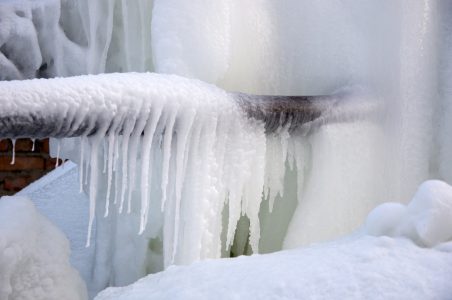Essential Advice to Avoid Frozen Pipes in Winter
Essential Advice to Avoid Frozen Pipes in Winter
Blog Article
Everybody will have their private idea in relation to How to Prevent Your Pipes From Freezing.

Cold weather can ruin your pipes, specifically by freezing pipes. Here's just how to stop it from happening and what to do if it does.
Intro
As temperatures drop, the risk of icy pipes increases, possibly causing costly fixings and water damages. Understanding just how to prevent icy pipes is critical for house owners in cool climates.
Avoidance Tips
Insulating prone pipelines
Wrap pipelines in insulation sleeves or make use of heat tape to secure them from freezing temperature levels. Focus on pipes in unheated or outside locations of the home.
Heating techniques
Keep indoor rooms adequately heated, specifically locations with pipes. Open cabinet doors to allow cozy air to flow around pipelines under sinks.
How to identify icy pipelines
Search for decreased water circulation from faucets, unusual smells or noises from pipelines, and noticeable frost on exposed pipelines.
Long-Term Solutions
Architectural adjustments
Take into consideration rerouting pipes far from exterior walls or unheated locations. Add additional insulation to attics, cellars, and crawl spaces.
Upgrading insulation
Purchase top quality insulation for pipelines, attics, and walls. Correct insulation helps preserve consistent temperatures and lowers the risk of icy pipelines.
Protecting Outdoor Plumbing
Garden pipes and exterior taps
Separate and drain pipes garden hose pipes before winter. Mount frost-proof faucets or cover outside faucets with shielded caps.
Understanding Icy Pipes
What creates pipes to ice up?
Pipelines freeze when exposed to temperature levels below 32 ° F (0 ° C) for expanded periods. As water inside the pipelines ices up, it expands, taxing the pipeline walls and potentially creating them to burst.
Dangers and problems
Icy pipelines can result in water disruptions, building damages, and expensive repair work. Burst pipes can flood homes and trigger substantial architectural damage.
Indications of Frozen Water Lines
Determining frozen pipes early can prevent them from bursting.
What to Do If Your Pipelines Freeze
Immediate activities to take
If you presume frozen pipes, maintain taps available to ease pressure as the ice thaws. Make use of a hairdryer or towels soaked in hot water to thaw pipes gradually.
Verdict
Avoiding icy pipelines requires positive actions and quick actions. By recognizing the causes, signs, and safety nets, home owners can protect their plumbing during cold weather.
5 Ways to Prevent Frozen Pipes
Drain Outdoor Faucets and Disconnect Hoses
First, close the shut-off valve that controls the flow of water in the pipe to your outdoor faucet. Then, head outside to disconnect and drain your hose and open the outdoor faucet to allow the water to completely drain out of the line. Turn off the faucet when done. Finally, head back to the shut-off valve and drain the remaining water inside the pipe into a bucket or container. Additionally, if you have a home irrigation system, you should consider hiring an expert to clear the system of water each year.
Insulate Pipes
One of the best and most cost-effective methods for preventing frozen water pipes is to wrap your pipes with insulation. This is especially important for areas in your home that aren’t exposed to heat, such as an attic. We suggest using foam sleeves, which can typically be found at your local hardware store.
Keep Heat Running at 65
Your pipes are located inside your walls, and the temperature there is much colder than the rest of the house. To prevent your pipes from freezing, The Insurance Information Institute suggests that you keep your home heated to at least 65 degrees, even when traveling. You may want to invest in smart devices that can keep an eye on the temperature in your home while you’re away.
Leave Water Dripping
Moving water — even a small trickle — can prevent ice from forming inside your pipes. When freezing temps are imminent, start a drip of water from all faucets that serve exposed pipes. Leaving a few faucets running will also help relieve pressure inside the pipes and help prevent a rupture if the water inside freezes.
Open Cupboard Doors
Warm your kitchen and bathroom pipes by opening cupboards and vanities. You should also leave your interior doors ajar to help warm air circulate evenly throughout your home.
:strip_icc()/snow-outdoor-faucet-pipes-4af65d1e5e904fb1aa7bf74071fe5d89.jpg)
I'm just very serious about How to Prevent Your Pipes From Freezing and I am hoping you enjoyed my post. Sharing is caring. Helping people is fun. I enjoy your readership.
Get Quote Report this page